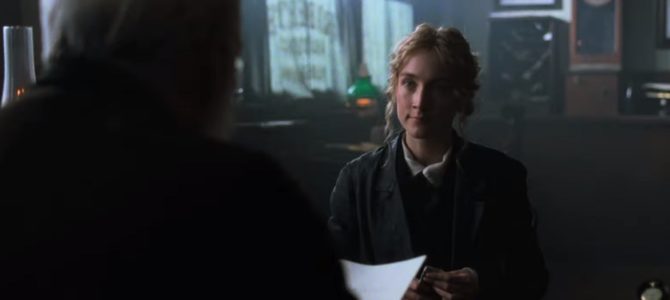
It took the two latest film adaptions (the 2017 Masterpiece production and the 2018 one with Lea Thompson) for me to develop genuine affection for “Little Women” onscreen, as I was not a fan of the 1994 release. So after watching the much-anticipated trailer for Greta Gerwig’s latest version, I was excited about seeing another epic retelling of the story I’ve come to love and appreciate with age.
Yet the trailer also left me with one slight concern: I really hope they don’t mess up Jo’s character. The trailer sets up Jo—who is often the most revered March sister, not to mention a favorite literary leading lady—in typical fashion as the feisty “feminist.” In the trailer, our heroine Jo remains steadfast and insistent that she and women have interests beyond love and romance. She also insists women have more to offer the world than companionship in marriage.
Describing marriage as confining and rigid, a mold she didn’t fit, Jo rejects the sacrament, believing it to be filled with more doom than destiny. With as much imagination as she had for her writing, I doubt that if Jo were real she would ever have dared to imagine beyond what she could see in the common man and marriage of the time.
But what the trailer doesn’t show is that by the end of Louisa May Alcott’s character arc for her, Jo does in fact fall in love and marry. It’s actually what makes her story quite special. She eventually gets both.
After a long battle in proving herself, she gets to be the writer she always dreamed of being. She also unexpectedly falls for a man she believes to be her intellectual equal after refusing what would have been an obvious and easy choice (even though many of her fans, myself included, don’t understand it, unless it’s in the movie with Ian Bohen).
Getting Jo’s character right is so important, not only for the sake of the story and artistic integrity, but because many women desire both something to pursue and someone that pursues them. We need to see more of this dynamic work its way out on screen instead of constantly seeing both desires at odds with each other.
As Barbara Probst Solomon correctly said, “Feminism didn’t admit the longing for romance.” In other words, only showcasing a feminism that denies a desire for authentic human love feels incomplete to most women. That’s especially true since it also only further contributes to the assumption that one must “choose” career over family or vice versa (unless you genuinely only want one or the other).
The desire to have both a domestic and societal calling remains a challenge for young women, especially in more traditional or religious circles like those of the March sisters. I can recount the more than a couple times I’ve heard fellow conservatives say they would love to see Judge Amy Coney Barrett on the Supreme Court one day, but question her career choice while a mom of seven. That’s something I also heard about Sarah Palin.
In a world where women felt like they had to choose one life or the other, Jo stays true to herself and makes her choice, yet love still finds her. She was a woman who knew who she was and what she wanted, and had the grit and endurance to persevere despite the weight and pressure of the time she was living in.
Since a trailer is like the cover, I want to be fair and not judge the book beforehand. We see an exchange between Jo and a male publisher in which he insists that a story about a girl must end with her getting married. So the ending of her story may have been left out on purpose for the sake of irony, but I fear social politics may have a larger part to play in this particular retelling, and I hope it doesn’t.
A woman’s plight back then may have been to desire something beyond marriage, either in place of or in addition to, or simply the freedom to wait for the right suitor or a mere say in who they married. But for many women today who are not getting married and have a desire to, or are getting married much later than they thought or would prefer, the dream that feels most far off is in fact, Meg’s, of a direct line to a joyous marriage.
It’s stunning to me that for all feminism has positively afforded the women of my generation, the age-old desire of “real love…from good men” (what Marmee wishes for all her girls in the Masterpiece adaption) feels harder than ever to have. Maybe it always was.









